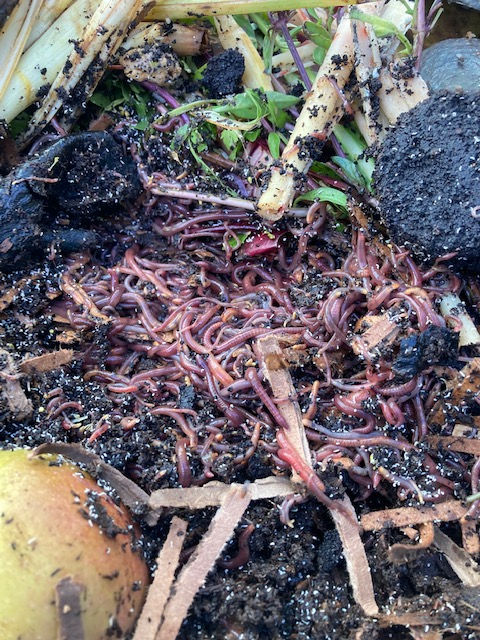Unleashing the Power of Worm Castings in Commercial Cannabis Grow Operations
- Clinton James
- Dec 6, 2023
- 2 min read
Updated: Jan 5, 2024

Worm castings serve as a potent and well-balanced fertilizer for cannabis plants, offering a plethora of benefits that contribute to robust growth and enhanced yield.
Slow-Release Nutrients:
Unlike chemical fertilizers that often provide a quick but short-lived nutrient boost, worm castings release nutrients gradually. This slow-release mechanism not only supports sustained plant growth but also prevents the risk of nutrient runoff, a common issue associated with conventional fertilizers.
Microbial Diversity:
Worm castings are teeming with beneficial microorganisms, including bacteria, fungi, and protozoa. This microbial diversity fosters a healthy soil ecosystem, promoting nutrient cycling and creating an environment conducive to nutrient absorption by cannabis plants. This natural balance is often disrupted by the harsh chemicals found in synthetic fertilizers.
Improved Soil Structure:
The organic matter present in worm castings enhances soil structure, promoting better water retention and aeration. This improved soil texture facilitates root development and nutrient uptake, providing cannabis plants with a stable and supportive foundation for growth.

Sustainability and Environmental Impact:
Reduced Environmental Footprint:
Commercial cannabis cultivation often relies on synthetic fertilizers that can contribute to environmental degradation. Worm castings, being an organic and sustainable option, help reduce the overall environmental impact of cannabis cultivation by promoting soil health and minimizing the release of harmful chemicals into the ecosystem.
Waste Reduction Through Vermicomposting:
Utilizing worm castings often involves the conversion of local organic waste into nutrient-rich castings. Biomass sourced nearby is utilized locally, reducing the cost and impact of heavy transport from a fertilizer manufacturing facility to the end user. Sourcing locally also interrupts the direct-to-landfill system and reduces waste, creating a more circular economy.

Worm Castings vs. Chemical Fertilizers:
Chemical-Free and Non-Toxic:
Worm castings are entirely natural and free from synthetic chemicals. This characteristic makes them a non-toxic option for cannabis cultivation, reducing the risk of harmful residues in the final product.
Balanced Nutrient Profile:
Chemical fertilizers often focus on providing specific nutrients in isolation, potentially leading to imbalances. Worm castings, on the other hand, offer a balanced spectrum of essential nutrients, promoting comprehensive and harmonious plant development.
Long-Term Soil Health:
While chemical fertilizers may provide quick results, they can degrade soil health over time. Worm castings, with their emphasis on organic matter and microbial activity, contribute to long-term soil health, ensuring sustainable cannabis cultivation practices.
Conclusion:
In conclusion, the benefits of incorporating worm castings into commercial cannabis grow operations are manifold. From the rich nutrient profile and microbial diversity to the sustainable and environmentally friendly aspects, worm castings present a compelling alternative to chemical fertilizers. By embracing this organic approach, cannabis cultivators can not only enhance yield and plant quality but also contribute to a more sustainable and ecologically responsible industry. As the spotlight on sustainable agriculture continues to grow, worm castings stand as a shining example of nature's wisdom harnessed for the benefit of modern cannabis cultivation.




Comments